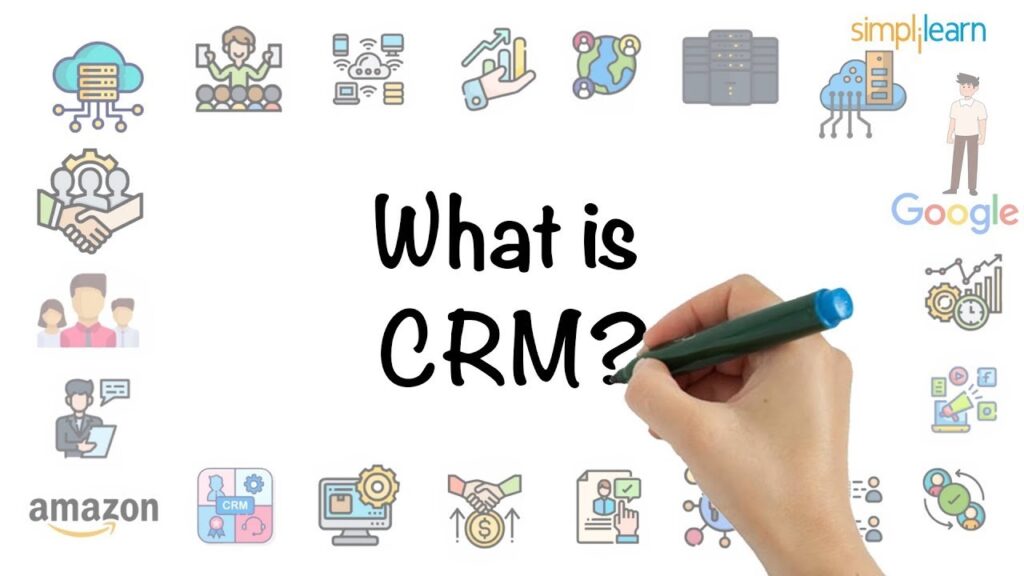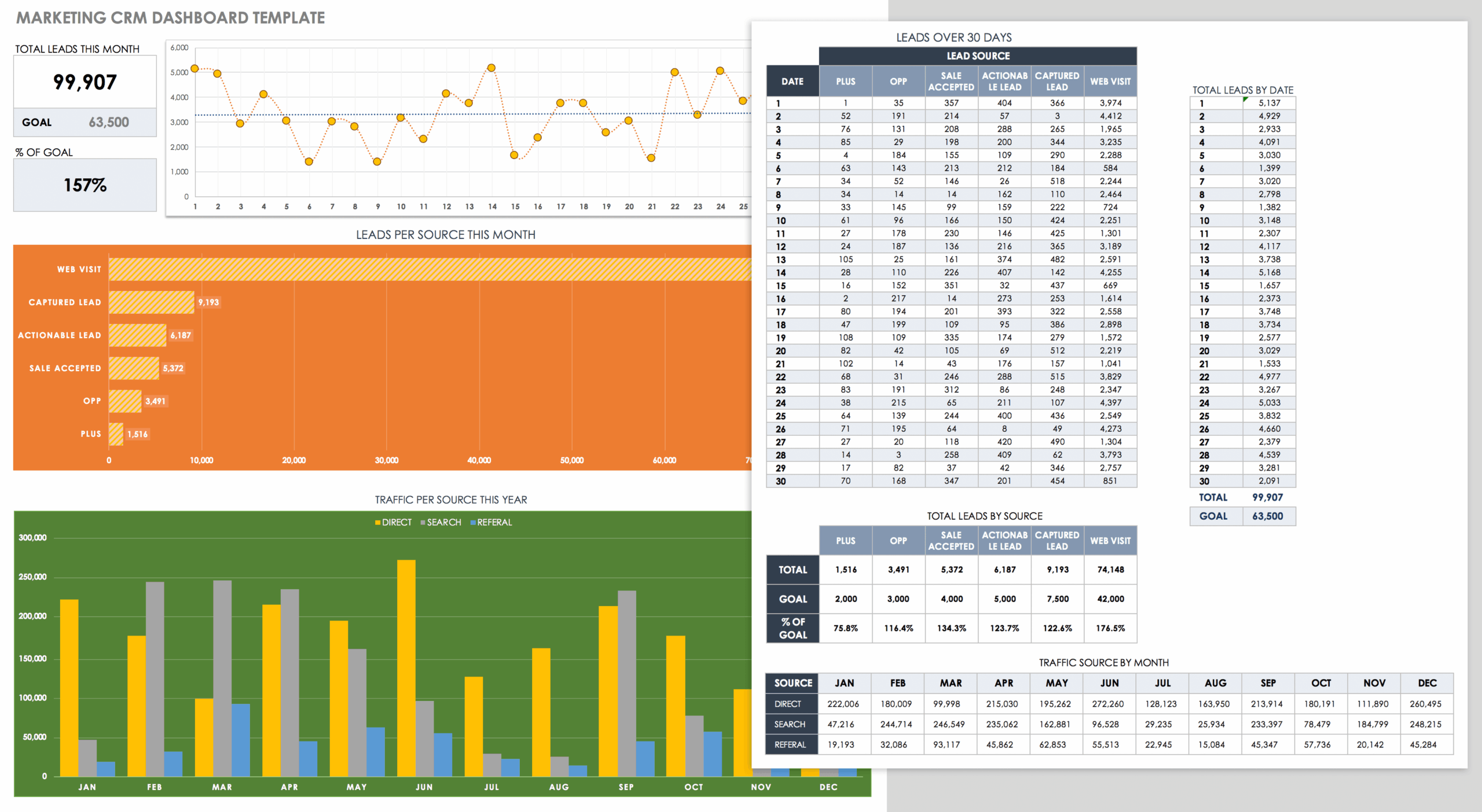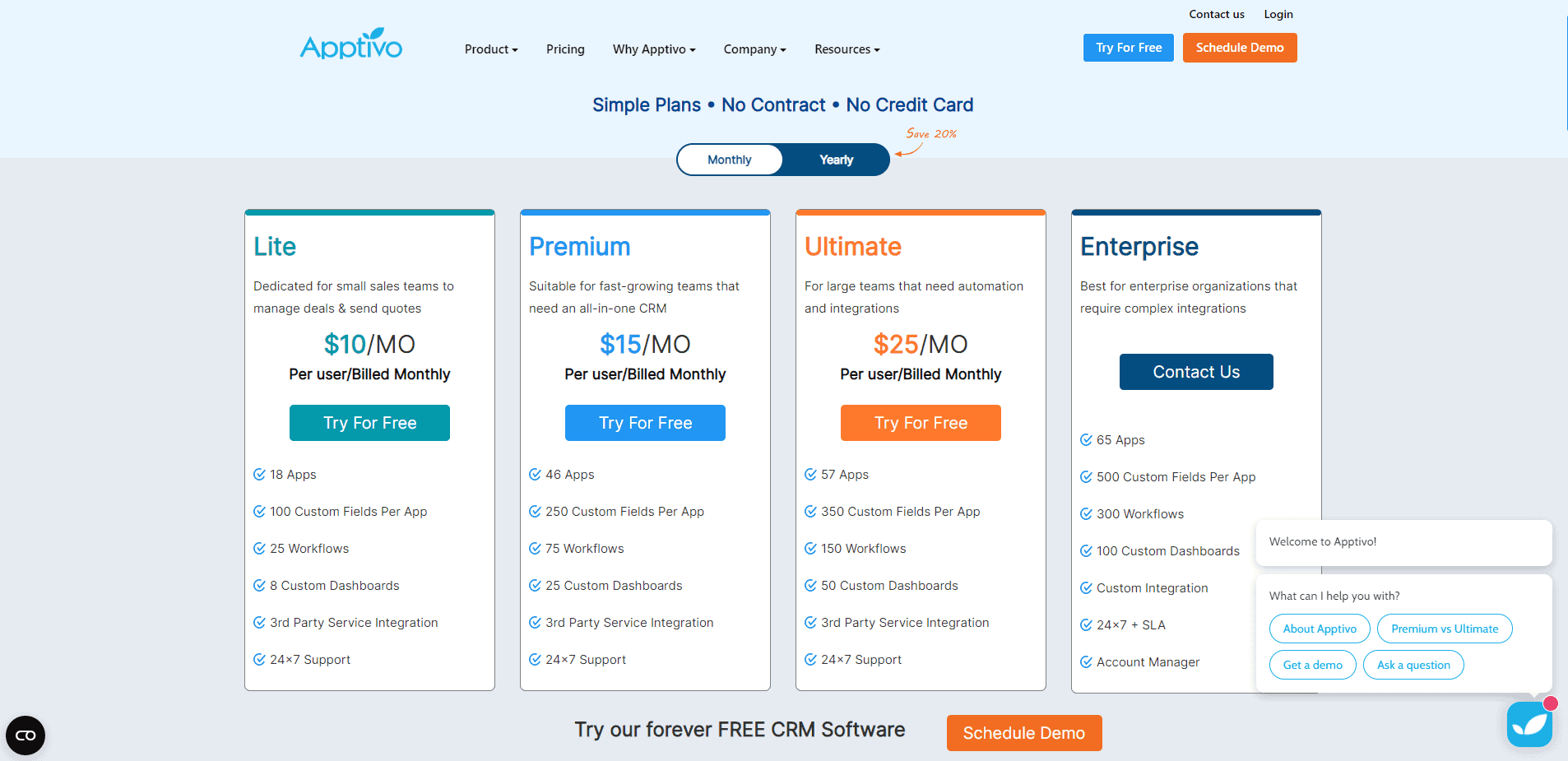
CRM Marketing for Beginners: Your Ultimate Guide to Customer Relationship Management
So, you’re intrigued by the world of CRM marketing, huh? Smart move! In today’s business landscape, understanding and implementing a Customer Relationship Management (CRM) system isn’t just a nice-to-have; it’s a must-have. Think of it as the digital heart of your business, pumping vital information and insights that keep your customers happy and your revenue flowing. This guide is designed specifically for beginners, breaking down the complexities and showing you how to harness the power of CRM to its fullest potential. No jargon, no fluff, just practical advice and actionable steps to get you started.
We’ll cover everything from the basics of what CRM is to how it can transform your marketing efforts, increase sales, and improve customer satisfaction. Get ready to dive in, and let’s unlock the secrets of CRM marketing together!
What is CRM Marketing? The Fundamentals
Let’s start with the basics. CRM marketing, at its core, is a strategic approach to managing and analyzing customer interactions and data throughout the customer lifecycle. It’s about building relationships, understanding your customers’ needs, and tailoring your marketing efforts to provide them with the best possible experience. This isn’t just about sending out generic emails; it’s about creating personalized experiences that resonate with your audience.
Think of it like this: Imagine you’re trying to befriend someone. You wouldn’t just walk up and start talking about yourself, right? You’d listen, learn about their interests, and tailor your conversations accordingly. CRM marketing does the same thing, but on a larger scale. It helps you gather information about your customers, understand their preferences, and communicate with them in a way that feels relevant and valuable.
Here’s a breakdown of key components of CRM marketing:
- Data Collection and Management: Gathering and organizing customer data, including contact information, purchase history, communication logs, and more.
- Customer Segmentation: Grouping customers based on shared characteristics, such as demographics, behavior, or purchase patterns.
- Personalized Communication: Tailoring marketing messages to specific customer segments, ensuring relevance and increasing engagement.
- Automation: Using CRM tools to automate repetitive tasks, such as email marketing, lead nurturing, and follow-up communication.
- Reporting and Analysis: Tracking key metrics, analyzing performance, and gaining insights to optimize marketing strategies.
By effectively implementing these components, you can transform your marketing efforts from generic campaigns to targeted, personalized experiences that drive results.
Why is CRM Marketing Important? The Benefits Explained
Okay, so CRM marketing sounds interesting, but why is it so important? What are the real-world benefits? The truth is, CRM marketing offers a multitude of advantages that can significantly impact your business’s bottom line. Here are some of the most significant benefits:
- Improved Customer Relationships: CRM systems allow you to understand your customers better, leading to stronger relationships and increased loyalty.
- Increased Sales: By understanding customer needs and preferences, you can tailor your marketing efforts to drive sales and increase revenue.
- Enhanced Customer Satisfaction: Personalized experiences and proactive communication lead to happier customers and improved customer satisfaction.
- Increased Efficiency: CRM automation streamlines tasks, freeing up your team to focus on more strategic initiatives.
- Better Decision-Making: CRM provides valuable data and insights, enabling you to make informed decisions about your marketing strategies.
- Reduced Costs: Automation and improved efficiency can help reduce marketing costs and improve ROI.
- Better Lead Generation: CRM can help you identify and nurture leads, increasing the chances of converting them into customers.
In essence, CRM marketing is about putting your customers first. By focusing on building strong relationships and providing exceptional experiences, you can create a loyal customer base that fuels your business’s growth. Think about it: happy customers are repeat customers, and repeat customers are the lifeblood of any successful business.
Choosing the Right CRM System for Beginners
Alright, you’re convinced. CRM marketing is the way to go! But where do you start? The first step is choosing the right CRM system. This can seem daunting, as there are countless options available, each with its own features and pricing. However, don’t worry. Here’s a beginner-friendly guide to help you navigate the selection process:
1. Define Your Needs
Before you start comparing systems, take some time to define your specific needs and goals. Ask yourself the following questions:
- What are your primary objectives? (e.g., increase sales, improve customer service, streamline marketing)
- What features do you need? (e.g., contact management, email marketing, sales automation, reporting)
- How many users will be using the system?
- What is your budget?
- Do you need any integrations with other systems? (e.g., accounting software, e-commerce platforms)
Answering these questions will help you narrow down your options and focus on systems that align with your specific requirements.
2. Research Your Options
Once you have a clear understanding of your needs, it’s time to start researching different CRM systems. Here are some popular options for beginners:
- HubSpot CRM: A free, user-friendly CRM with powerful features for contact management, sales, and marketing.
- Zoho CRM: A comprehensive CRM with a wide range of features, suitable for businesses of all sizes.
- Salesforce Essentials: A streamlined version of Salesforce, designed for small businesses.
- Freshsales: A sales-focused CRM with features like lead scoring, deal management, and phone integration.
- Insightly: A CRM focused on project management and sales.
Read reviews, compare features, and check out pricing plans to get a feel for what each system offers.
3. Consider Ease of Use
For beginners, ease of use is crucial. Look for a system with a user-friendly interface, intuitive navigation, and helpful tutorials or support resources. A complicated system will only frustrate you and your team, so choose one that is easy to learn and implement.
4. Evaluate Scalability
Think about your future growth. Will the CRM system be able to scale with your business? Consider whether it offers the features and capabilities you’ll need as your company grows.
5. Check for Integrations
Ensure the CRM system integrates with your existing tools and platforms, such as your email marketing software, website, and social media channels. Seamless integration will streamline your workflow and improve efficiency.
6. Take Advantage of Free Trials
Most CRM systems offer free trials. Take advantage of these to test the system and see if it’s a good fit for your business. This will give you hands-on experience and help you make an informed decision.
By following these steps, you can choose a CRM system that meets your needs and sets you up for success in CRM marketing.
Implementing CRM Marketing: A Step-by-Step Guide
So you’ve chosen your CRM system, fantastic! Now comes the exciting part: implementing it. Here’s a step-by-step guide to help you get started:
1. Plan Your Implementation
Before you dive in, create a detailed plan. This should include:
- Defining your goals: What do you want to achieve with your CRM system?
- Identifying your key processes: How will you use the CRM for sales, marketing, and customer service?
- Mapping your data: What data will you import into the system?
- Creating a timeline: Set realistic deadlines for each stage of the implementation.
A well-defined plan will ensure a smooth and successful implementation.
2. Data Migration and Setup
Import your existing customer data into the CRM system. Ensure the data is clean, accurate, and organized. Set up your user accounts, customize the system to your specific needs, and configure any integrations.
3. Training Your Team
Train your team on how to use the CRM system. Provide them with the necessary resources, such as tutorials, user manuals, and ongoing support. Encourage them to ask questions and provide feedback.
4. Start Small and Iterate
Don’t try to implement everything at once. Start with a few key features and gradually expand your usage. This will allow you to learn the system and make adjustments as needed. Regularly review your processes and make improvements based on your experiences.
5. Use CRM for Data Segmentation
One of the most powerful features of CRM is the ability to segment your data. Use the data you have gathered to create different customer segments. Common segments could be based on:
- Demographics: Age, gender, location, income
- Behavior: Purchase history, website activity, email engagement
- Interests: Products viewed, content consumed
- Customer Lifecycle Stage: Lead, prospect, customer, advocate
Segmenting allows you to create highly targeted campaigns.
6. Automate Your Marketing
CRM systems can automate many marketing tasks, such as:
- Welcome emails: Automatically send a welcome email to new subscribers.
- Lead nurturing sequences: Send a series of emails to nurture leads through the sales funnel.
- Abandoned cart emails: Remind customers about items they left in their cart.
- Post-purchase follow-up: Thank customers for their purchase and offer support.
Automation saves time and improves efficiency.
7. Analyze and Optimize
Regularly track your CRM data and analyze your results. Identify what’s working and what’s not. Use this data to optimize your marketing strategies and improve your CRM processes. Key metrics to track include:
- Conversion rates
- Customer lifetime value
- Customer satisfaction scores
- Email open and click-through rates
By following these steps, you can successfully implement CRM marketing and start seeing results.
CRM Marketing Strategies for Beginners
Now that you have a solid understanding of CRM marketing and how to implement it, let’s explore some effective strategies you can use to achieve your marketing goals.
1. Personalized Email Marketing
Email marketing is a cornerstone of CRM. Use your CRM data to personalize your emails and create more engaging experiences. Personalize emails by:
- Using the customer’s name
- Referencing their past purchases
- Recommending relevant products
- Segmenting your list and sending targeted content
Personalized emails generate higher open rates, click-through rates, and conversions.
2. Targeted Content Marketing
Create content that resonates with each customer segment. Use your CRM data to understand their interests and preferences, and then create content that addresses their specific needs. This could include:
- Blog posts
- Ebooks
- Webinars
- Videos
Targeted content helps you attract and engage your audience and position yourself as an industry expert.
3. Lead Scoring and Nurturing
Use lead scoring to identify your most qualified leads. Assign points to leads based on their behavior and engagement, such as:
- Website visits
- Content downloads
- Email opens and clicks
- Form submissions
Nurture your leads with targeted content and automated email sequences to move them through the sales funnel.
4. Customer Segmentation and Targeting
As mentioned earlier, segmentation is key. Divide your customer base into segments based on shared characteristics and then create targeted campaigns for each segment. This will help you deliver more relevant and engaging experiences.
5. Social Media Integration
Integrate your CRM with your social media channels to track social interactions, engage with customers, and monitor brand mentions. Use social media to:
- Promote your content
- Run targeted ads
- Respond to customer inquiries
- Monitor brand sentiment
Social media integration helps you build relationships and expand your reach.
6. Customer Feedback and Surveys
Use your CRM to collect customer feedback and conduct surveys. This will help you understand your customers’ needs and preferences and identify areas for improvement. Use customer feedback to:
- Improve your products and services
- Enhance your customer service
- Identify opportunities for innovation
Customer feedback is invaluable for building a customer-centric business.
7. Sales Automation
Automate your sales processes to improve efficiency and close more deals. Use your CRM to:
- Track leads and opportunities
- Automate follow-up emails
- Manage sales pipelines
- Generate sales reports
Sales automation frees up your sales team to focus on closing deals.
8. Customer Service Optimization
Use your CRM to improve your customer service. Track customer interactions, manage support tickets, and resolve issues quickly and efficiently. This will improve customer satisfaction and build loyalty.
By implementing these strategies, you can leverage the power of CRM marketing to achieve your business goals.
Common Pitfalls and How to Avoid Them
While CRM marketing offers tremendous benefits, it’s essential to be aware of potential pitfalls and take steps to avoid them. Here are some common mistakes and how to overcome them:
1. Poor Data Quality
Garbage in, garbage out. If your CRM data is inaccurate, incomplete, or outdated, your marketing efforts will be ineffective. To avoid this, focus on:
- Data cleansing: Regularly review and update your data to ensure accuracy.
- Data validation: Implement processes to ensure data is accurate when it’s entered.
- Data enrichment: Use data enrichment tools to fill in missing information.
Investing in data quality is essential for the success of your CRM marketing efforts.
2. Lack of Integration
Failing to integrate your CRM with other systems can lead to data silos and inefficiencies. To avoid this, ensure your CRM integrates with your other tools, such as your:
- Email marketing platform
- Website
- Social media channels
- E-commerce platform
Seamless integration will streamline your workflow and improve your results.
3. Overcomplicating the System
Resist the urge to overcomplicate your CRM system. Start with the basics and gradually add features as needed. Overcomplicating the system can make it difficult to use and hinder your team’s adoption.
4. Neglecting Training
Failing to train your team on how to use the CRM system is a recipe for disaster. Provide your team with adequate training, resources, and ongoing support. Ensure they understand how to use the system effectively and how it benefits them.
5. Lack of Measurement
Without measuring your results, you won’t know if your CRM marketing efforts are effective. Track key metrics, such as:
- Conversion rates
- Customer lifetime value
- Email open and click-through rates
- Customer satisfaction scores
Use this data to optimize your strategies and improve your results.
6. Ignoring Customer Feedback
Ignoring customer feedback is a missed opportunity to improve your products, services, and customer relationships. Actively solicit customer feedback and use it to make improvements. This will show your customers that you value their opinions and are committed to providing them with the best possible experience.
By avoiding these pitfalls, you can maximize your chances of success with CRM marketing.
Measuring the Success of Your CRM Marketing
How do you know if your CRM marketing efforts are paying off? You need to track key metrics and analyze your results. Here are some important metrics to monitor:
1. Conversion Rates
Track the percentage of leads that convert into customers. This is a key indicator of your marketing effectiveness. Monitor conversion rates at each stage of the sales funnel to identify areas for improvement.
2. Customer Lifetime Value (CLTV)
Calculate the average revenue generated by a customer over their relationship with your business. CLTV is a valuable metric for understanding the long-term value of your customers and the effectiveness of your customer retention efforts.
3. Customer Acquisition Cost (CAC)
Determine the cost of acquiring a new customer. This metric helps you understand the efficiency of your marketing and sales efforts. Compare CAC to CLTV to determine your profitability.
4. Customer Satisfaction (CSAT)
Measure customer satisfaction through surveys, feedback forms, and other channels. High CSAT scores indicate that your customers are happy with your products, services, and customer service.
5. Net Promoter Score (NPS)
Use NPS to gauge customer loyalty and willingness to recommend your business to others. NPS is a simple yet powerful metric for measuring customer advocacy.
6. Email Open and Click-Through Rates
Track email open and click-through rates to measure the effectiveness of your email marketing campaigns. High open and click-through rates indicate that your emails are engaging and relevant.
7. Website Traffic and Engagement
Monitor website traffic, bounce rates, and time on page to understand how customers are interacting with your website. This data can help you optimize your website and content for conversions.
By regularly tracking these metrics, you can gain valuable insights into the performance of your CRM marketing efforts and make data-driven decisions to improve your results.
The Future of CRM Marketing
The world of CRM marketing is constantly evolving. Staying up-to-date with the latest trends and technologies is crucial for staying ahead of the curve. Here are some emerging trends to watch out for:
1. Artificial Intelligence (AI) and Machine Learning (ML)
AI and ML are transforming CRM marketing by automating tasks, providing predictive insights, and personalizing customer experiences. AI-powered CRM systems can:
- Analyze customer data to identify patterns and trends
- Predict customer behavior
- Personalize content and offers
- Automate marketing campaigns
AI and ML will continue to play a significant role in the future of CRM marketing.
2. Hyper-Personalization
Customers expect personalized experiences. Hyper-personalization takes personalization to the next level by tailoring content, offers, and experiences to individual customer preferences and behaviors. This requires:
- Collecting and analyzing vast amounts of customer data
- Using AI and ML to understand customer needs and preferences
- Delivering highly relevant and targeted content
Hyper-personalization will be a key differentiator in the future of CRM marketing.
3. Omnichannel Marketing
Customers interact with businesses across multiple channels, including email, social media, website, and mobile apps. Omnichannel marketing provides a seamless and consistent customer experience across all channels. This requires:
- Integrating your CRM with all your marketing channels
- Creating a unified view of the customer
- Delivering consistent messaging and branding
Omnichannel marketing is essential for providing a positive customer experience.
4. Customer Data Platforms (CDPs)
CDPs are becoming increasingly popular. They collect and unify customer data from various sources, providing a centralized view of the customer. CDPs can:
- Improve data quality
- Enable better segmentation and targeting
- Enhance personalization
CDPs are a valuable tool for CRM marketers.
5. Increased Focus on Customer Experience (CX)
Customer experience is becoming a key differentiator. Businesses that prioritize customer experience are more likely to retain customers and drive growth. CRM marketing plays a crucial role in creating a positive customer experience by:
- Personalizing interactions
- Providing proactive customer service
- Building strong customer relationships
Customer experience will continue to be a top priority for businesses.
By staying informed about these trends, you can position your business for success in the ever-evolving world of CRM marketing.
Conclusion: Embracing the Power of CRM Marketing
Congratulations! You’ve made it to the end of this comprehensive guide to CRM marketing for beginners. You now have a solid understanding of what CRM is, why it’s important, and how to implement it effectively.
Remember, CRM marketing is not just about technology; it’s about building relationships with your customers. By focusing on understanding their needs, providing exceptional experiences, and tailoring your marketing efforts, you can create a loyal customer base that fuels your business’s growth.
So, take the first step. Choose the right CRM system, implement it strategically, and start seeing the results. The future of your business is waiting!
Now go forth and conquer the world of CRM marketing!




